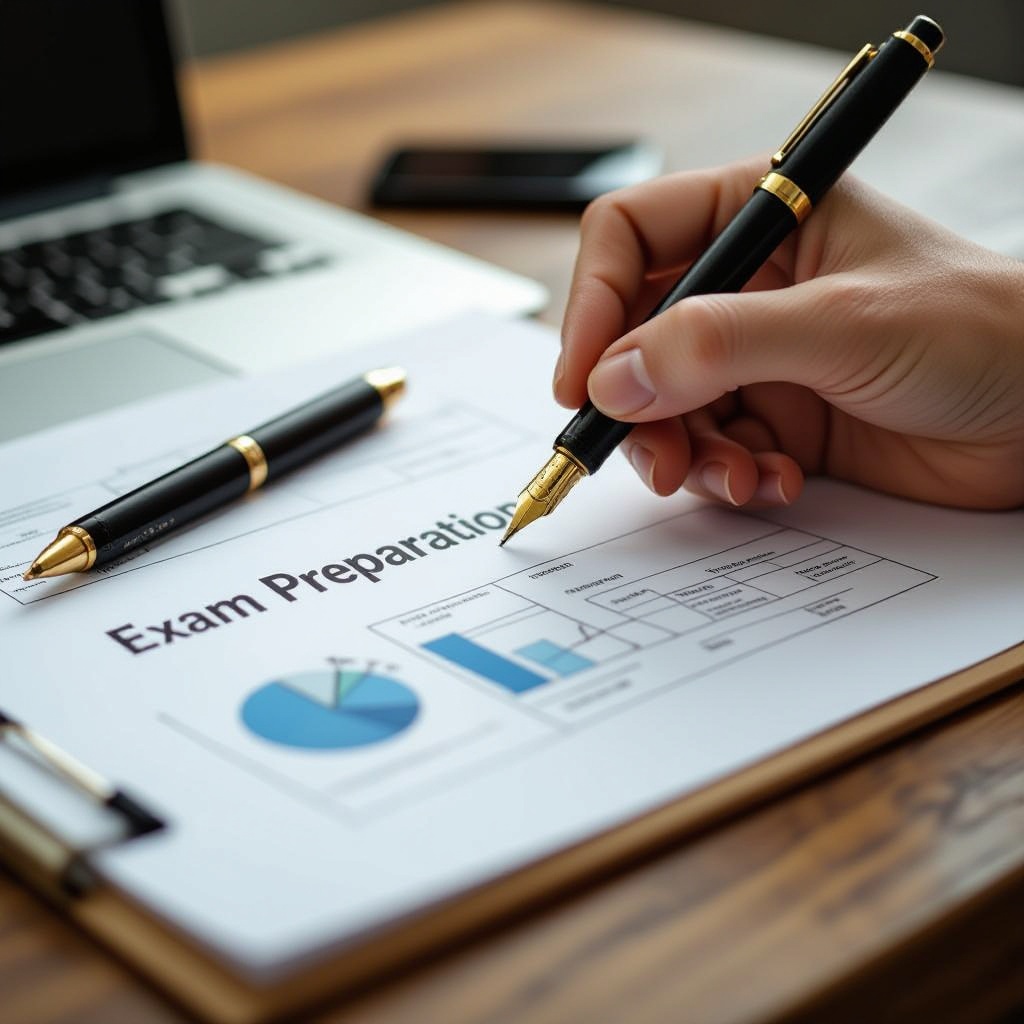Mastering math exams confidently comes from more than just mastering the material; it means strategic preparation and consistent practices that boost skills and ease anxiety. By using engaging study methods like active problem-solving and structured practice, students can tackle the challenges of math exams and succeed.
Key Takeaways
-
Daily short study sessions improve retention and understanding effectively.
-
Engage in diverse problem-solving to boost exam readiness.
-
Simulating exam scenarios helps manage anxiety and time efficiently.
-
Practicing good study habits, such as setting goals and leveraging visual tools, builds confidence.
-
Using practice tests and self-assessment reveals areas needing more focus.
Mastering Math Exams: Proven Tips for Success
Consistent practice is vital for building confidence in math exams. Students who engage in regular study sessions tend to outperform those who try to cram, according to a study by the Education Department. Implementing daily, short study sessions can significantly improve retention and understanding. Here’s how to structure an effective study schedule:
- Set clear, attainable goals for each study session.
- Allocate specific time slots daily dedicated to studying math.
- Use organized study materials, such as flashcards or digital notes.
Having your study resources organized ensures quick access and better focus on essential topics. Goal-setting not only bolsters clarity but also encourages a sense of achievement. Prioritize structure and consistency. It’s your pathway to mastering math exams with confidence.

Understanding Current Math Performance Trends
Recent trends show a decline in math performance, with SAT scores illustrating this concerning shift. Between 2021 and 2024, SAT math scores dropped significantly, highlighting a gap that needs addressing. In 2021, average SAT math scores were higher than what we’ve seen by 2024, marking an urgent need for better preparation strategies and resources.
COVID-19 disruptions have had a lasting impact. Students faced challenges with remote learning, which influenced their understanding and retention of mathematical concepts. Recovery has been gradual, but noticeable gaps remain, particularly in certain states. Proficiency rates in Colorado, for instance, have shown a slow climb since the pandemic began but continue to reflect a need for targeted improvement in math skills and assessment readiness.
To give you a clearer picture of these effects, consider these statistics:
- SAT math scores decreased by an average of 16 points from 2021 to 2024.
- Math proficiency rates in Colorado fell by approximately 10% initially, with only a 5% recovery reported recently.
These trends underscore the importance of effective preparation. Students need strategies that boost their confidence and proficiency in math exams. Understanding these patterns is crucial as it sets the stage for developing approaches that address specific knowledge gaps. By focusing on strategic preparation and using tools that reinforce fundamental skills, students can overcome these challenges and excel in their math exams.

Effective Techniques for Solving Math Problems
To build confidence in math exams, you need to adopt dynamic study methods. Focus on active problem-solving rather than passive reading. Work through different types of problems regularly. This rotation helps you handle unexpected questions during exams.
Simulating exam conditions boosts performance. Set a timer and practice under conditions similar to those you’ll face during the actual exam. This approach reduces anxiety and improves time management.
Understanding concepts is crucial. Don’t just memorize formulas. Grasping the ‘why’ behind formulas lets you apply them effectively. Visual tools, like topic maps, can enhance comprehension. They provide a clear overview of relationships between different math concepts.
Remember these strategies:
- Prioritize active problem-solving
- Rotate through various problem types
- Practice under timed conditions
- Use visual aids for conceptual clarity
These practices empower you to tackle exams with confidence and success.

Developing Exam Confidence and Reducing Math Anxiety
To boost exam confidence, managing stress is key. Start by maintaining a balanced schedule. Distribute study time evenly across days rather than cramming. This approach aids retention better than last-minute study marathons. Prioritize getting adequate sleep to improve concentration and problem-solving skills during exams.
Recognize the power of effective study habits over cramming. Efficient strategies include setting specific goals for each study session and actively engaging with the material through practice problems. These habits help solidify understanding and lower stress levels. Self-care isn’t just a bonus but an essential part of academic success. Balance nutrition, exercise, and relaxation practices like mindfulness to help manage anxiety levels.
By adopting these strategies, you can approach math exams with confidence and clarity, ensuring your hard work translates into success.
Avoiding Common Study Pitfalls
Many students fall into ineffective strategies like passive review and cramming. Simply reading over notes or textbooks often leads to poor retention. I suggest opting for active engagement instead. This includes solving practice problems, teaching concepts to others, and using flashcards.
Tackle weak areas early rather than avoiding them. Use identified errors on past exams to guide your focus. Addressing mistakes immediately helps reinforce learning.
Organized notes are vital. Keep them clear and structured to aid revision. Visual aids like charts and diagrams can make complex ideas more understandable.
To sum up:
- Engage actively with the material.
- Address weak areas promptly.
- Maintain clear and structured notes.
By avoiding these common pitfalls, you’ll improve your confidence and performance in math exams.

Building Motivation and Confidence Through Progress Tracking
Tracking progress through regular practice tests and self-assessment does wonders for boosting confidence in math exams. Regular assessment makes it easier to identify strengths and areas for improvement. For those looking to enhance their math skills, these steps can pave the way:
- Take Practice Tests: Schedule practice tests regularly. These simulate actual exam conditions and provide a benchmark for your performance.
- Self-Assess: After each test, review your mistakes. Understanding where you went wrong helps prevent repeat errors.
- Set Clear Goals: Establish specific, achievable targets for each session. This focus helps maintain your motivation and direction.
Utilizing support systems like teachers and peers elevates the learning experience. Collaborative study and problem-solving enrich understanding and foster a comprehensive approach. Here’s how you can make the most of your support systems:
- Engage with Teachers: Leverage their expertise. Don’t hesitate to ask questions or seek clarification on challenging topics.
- Collaborative Study: Study groups encourage discussion and diverse perspectives. They offer a platform for problem-solving and sharing insights.
Combining self-assessment with collaboration creates a well-rounded strategy. It nurtures confidence and ensures you’re prepared for exam challenges.

